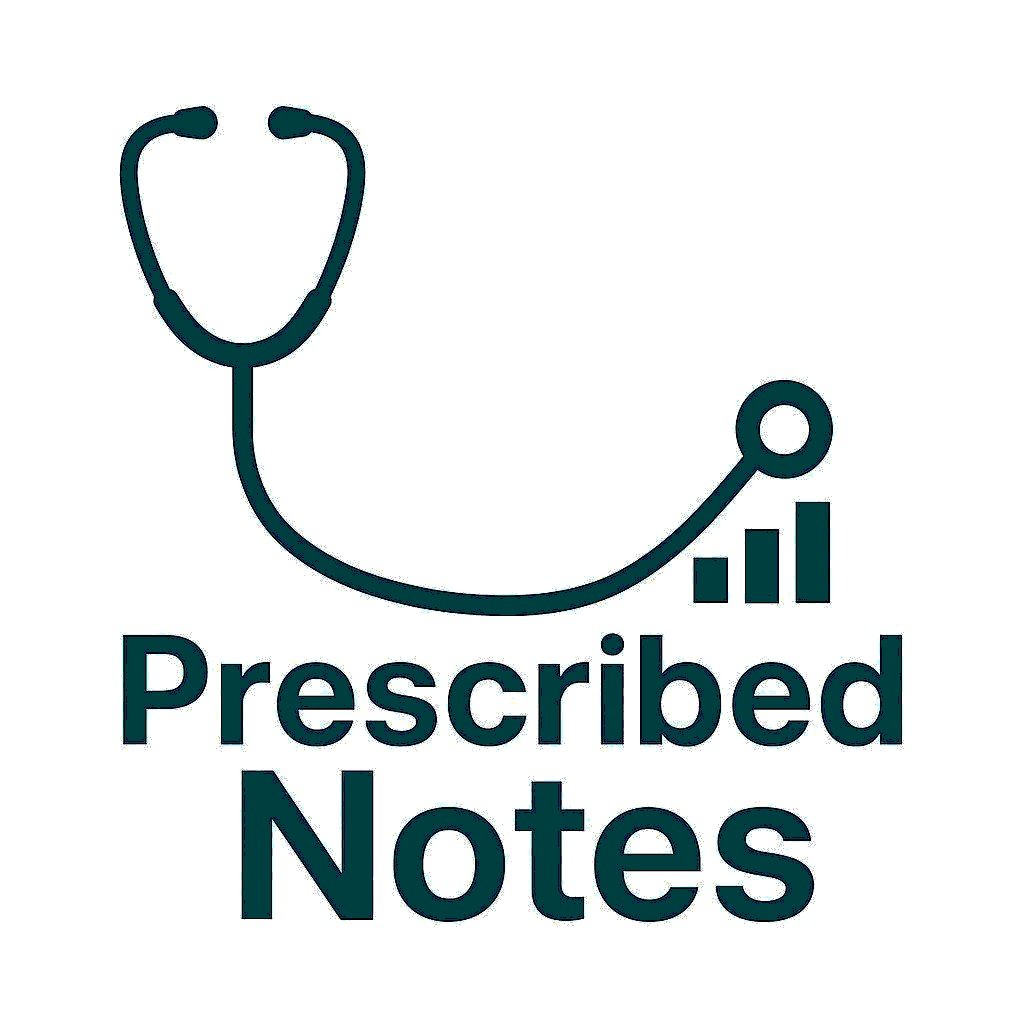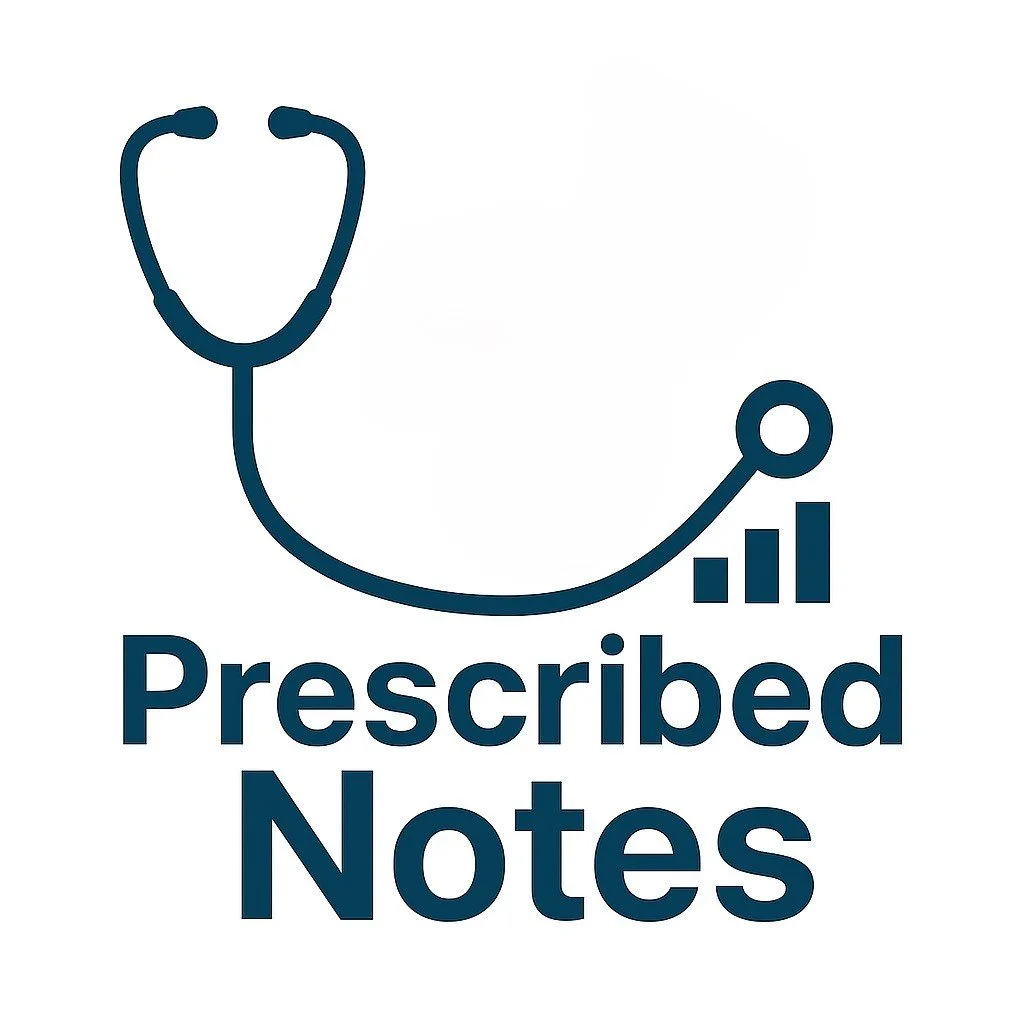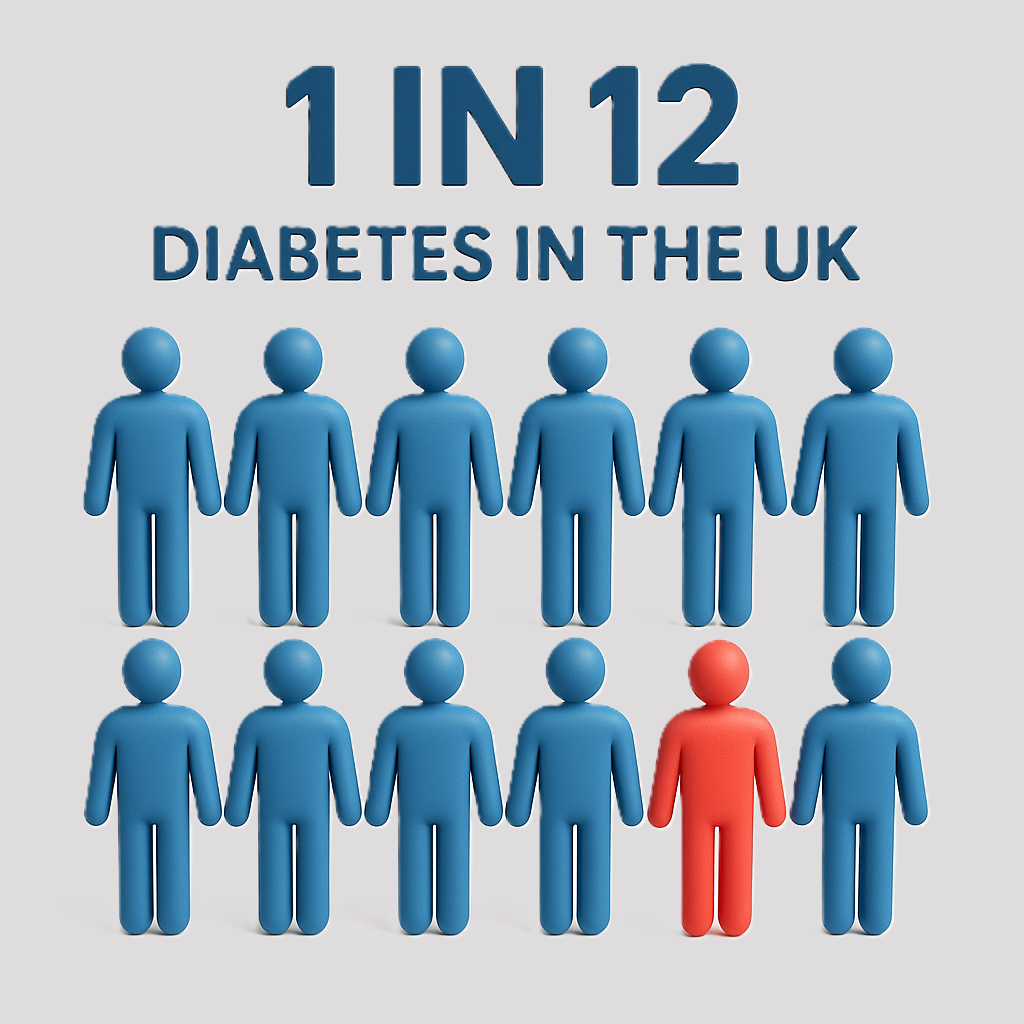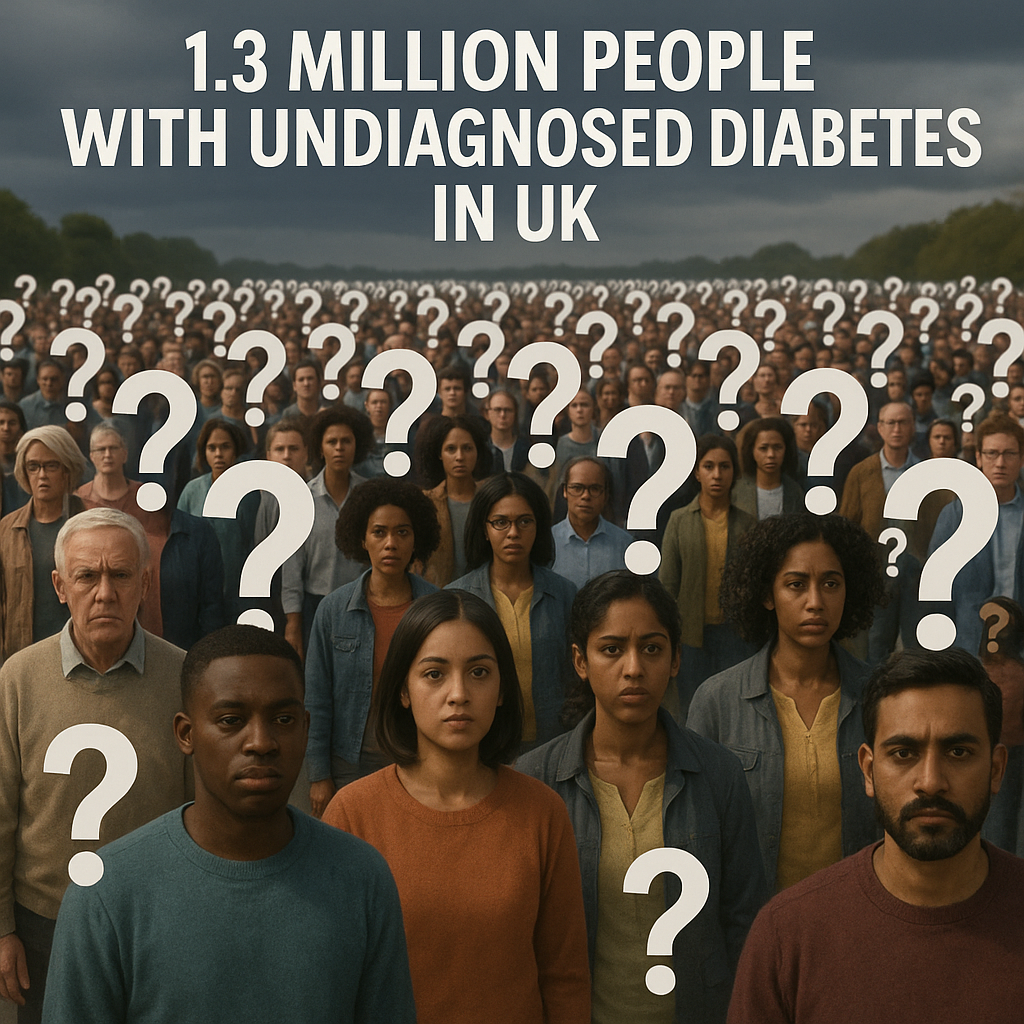
DR. STEPHEN LAWRENCE
ABOUT PRESCRIBED NOTES
WHERE MEDICAL EXPERTISE MEETS MUSICAL INNOVATION
As both a practicing physician, associate professor specializing in Diabetes care, and an accomplished improvising pianist, Dr. Stephen Lawrence discovered that traditional medical education often fails to resonate with healthcare professionals in a meaningful way. A non-jargon, bite-size approach helps patients to understand important medical principles.
Through years of clinical practice, it became clear that patients retained medical information better when presented through musical frameworks and rhythmic patterns. This insight led to the development of a unique teaching methodology that leverages musical elements to enhance understanding and recall of critical diabetes and healthcare management concepts.
Dr. Lawrence brings exceptional expertise to this platform, having previously served as the Diabetes Lead for the Royal College of General Practitioner (RCGP) and as the Primary Care Lead for Diabetes UK. His extensive experience in these prestigious roles has given him unique insights into the challenges faced by both patients and healthcare providers.
Beyond his medical career, Dr Lawrence has an alter ego on social media, where his channels showcase his musical talents. There, he simply composes and plays music for the enjoyment of others, revealing the artistic side that complements his medical expertise.
Prescribed Notes was found to bring this innovative approach to a wide audience. Today, it helps both patients and healthcare professionals better understand and manage diabetes and other healthcare concepts through the universal language of music.

A FOCUS ON DIABETES
UNDERSTANDING THE SCALE OF THE PROBLEM
In the UK alone, 1 in 12 people are living with diabetes.
That’s 8.3% of the population, which amounts to around 5 million individuals - more than the entire population of Scotland.
Every 3 minutes, someone in the UK is diagnosed with diabetes.
And for every person diagnosed, there are many more living with complications they don’t yet see coming.
This is not just about blood sugar. It’s about increased risk of heart disease, stroke, kidney failure, amputations, vision loss and mental health struggles.
It affects children, working adults and older people - across every community.
.
The Hidden Crisis
1.3 million people in the UK have diabetes but don’t know it.
The number is equivalent to the combined populations of Birmingham and Luton.
These are not just numbers, they are a daily reality shaped by stigma, misunderstanding and life-altering consequences.
Early detection and proper management can significantly improve quality of life for people with diabetes. Education is key to successful management.
.
How diabetes is diagnosed and monitored - introducing HbA1c
Imagine your red blood cells as tiny boats floating along in your bloodstream. When your blood sugar (glucose) levels are high, more glucose molecules start to stick to these little boats as they travel. The HbA1c test measures how many of these boats have picked up glucose passengers along the way. The more glucose that’s attached, the higher your HbA1c result—showing us how much sugar has been floating in your blood over
.

OUR UNIQUE APPROACH
Research suggests that the integration of music into healthcare education significantly improves retention and understanding of complex medical concepts. Studies show that music enhances the learning experience through heightened awareness and improved mood(1). We combine medical science with musical elements to create more engaging and effective healthcare education based on this evidence.
de Witte, M., Spruit, A., van Hooren, S,. Moonen, X., & Stams, G.J.(2020). Effects of music interventions on stress-related outcomes: a systematic review and two-meta analyses. Health Psychology Review, 14(2), 294-324.
Prescribed Notes uniquely combines live piano music with evidence-based diabetes and healthcare education to engage, inspire, and empower diverse audiences.
Hover on the pictures below for more information.
Research-Backed Methods

Musical Mnemonics

Multi-Sensory Learning

Rhythmic Education

PEER REVIEW RESEARCH
Explore peer-reviewed research highlighting how music enhances learning, memory and information retention by visiting the journals below.
Zaatar, M. T., Alhakim, K., Enayeh, M., & Tamer, R. (2024). The Transformative Power of Music: Insights into neuroplasticity health, and disease. Brain, Behaviour, & Immunity - Health, 35, 100716. https://doi.org/10.1016/j.bbih.2023.100716
Bleibel, M., El Cheikh, A., Sadier, N. S, & Abou-Abbas, L. (2023). The effect of music therapy on cognitive functions in patients with Alzheimer’s Disease: A systematic review of randomized controlled trials. Alzehimers Research & Therapy, 15(1), 65. http://doi.org/10.1186/s13195-023-01214-9

THE MISSION & VALUES
1. EMPOWERMENT THROUGH EDUCATION
We believe that well-informed patients make better health decisions. Our primary mission is to empower individuals with diabetes through innovative educational methods. Whilst there is a focus on diabetes, the principle extends to other healthcare areas as covered by general practice.
2. INNOVATION IN HEALTHCARE EDUCATION
We continously explore new ways to make medical education more engaging, memorable, and effective through the integration of musical elements.
We strive to make diabetes and general healthcare education accessible to everyone, offering free foundational resources alongside premium content for those seeking more comprehensive support.
3. ACCESSIBILITY FOR ALL
All our educational content is grounded in the latest medical research and clinical guidelines, ensuring that patients and professionals receive accurate, up-to-date information.
4. EVIDENCE-BASED APPROACH
Core Components of the Method
1. Live Piano Performance
Live piano improvisation is used not just for atmosphere, but as an active teaching tool. Musical themes serve as metaphors for clinical concepts and act as memory cues, helping participants retain complex information more effectively.
The performance element creates a dynamic, emotionally engaging learning environment that supports attention and recall.
2. Narrative Storytelling
Real-world stories—both from clinical practice and personal journeys—are woven into the sessions. This narrative approach contextualizes medical information, making it relatable and memorable.
Storytelling connects evidence-based content to everyday experiences, enhancing empathy and practical understanding.
3. Evidence-Based Teaching
The educational content is rooted in current clinical guidelines and research, ensuring accuracy and relevance.
Lessons are designed to meet the learning needs of both healthcare professionals and lay audiences, using music to reinforce key messages.
4. Reflective Space
Sessions incorporate dedicated time for reflection, allowing participants to process emotions, share insights, and connect with others.
This reflective practice fosters a sense of community and personal growth, which is especially valuable in chronic disease education and support.
THE PRESCRIBED NOTES METHOD
What Is the ‘Prescribed Notes Method’?
Dr. Lawrence describes his Prescribed Notes Method as a distinctive educational approach that fuses creative musical expression with clinical education to inform, reflect, and transform the learning experience. This method delivers music-infused education through a carefully structured, multisensory format, designed to deepen understanding and engagement, particularly in the context of diabetes and chronic health conditions.
Underlying Philosophy
The Prescribed Notes Method is grounded in the belief that learning is most effective when it is immersive, emotionally resonant, and personally meaningful. By uniting music, narrative, evidence, and reflection, this approach transforms traditional health education into a creative, empowering experience for all learners.
Applications and Impact
For Healthcare Professionals: Enhances engagement in continuing education, supports memory retention, and encourages holistic, patient- centered care.
For Patients and the Public: Makes complex health information accessible and memorable, reduces anxiety, and empowers self-management
For Children and Diverse Audiences: The multisensory, playful approach (including humour and visuals) makes learning about diabetes and health fun and approachable
For Employers and HR: Corporate away days tailored to the team’s healthcare management needs
Prescribed Notes is positioned to support and partner with international diabetes education initiatives, such as the IDF KiDS programme. Our multi-sensory approach is uniquely suited to bring the KiDS mission to life in school settings—making complex health messages memorable through live music, storytelling, and interactive formats, offered both in person and online
Together, this unique blend creates a powerful, memorable way to engage learners, uplift communities and promote wellbeing.









